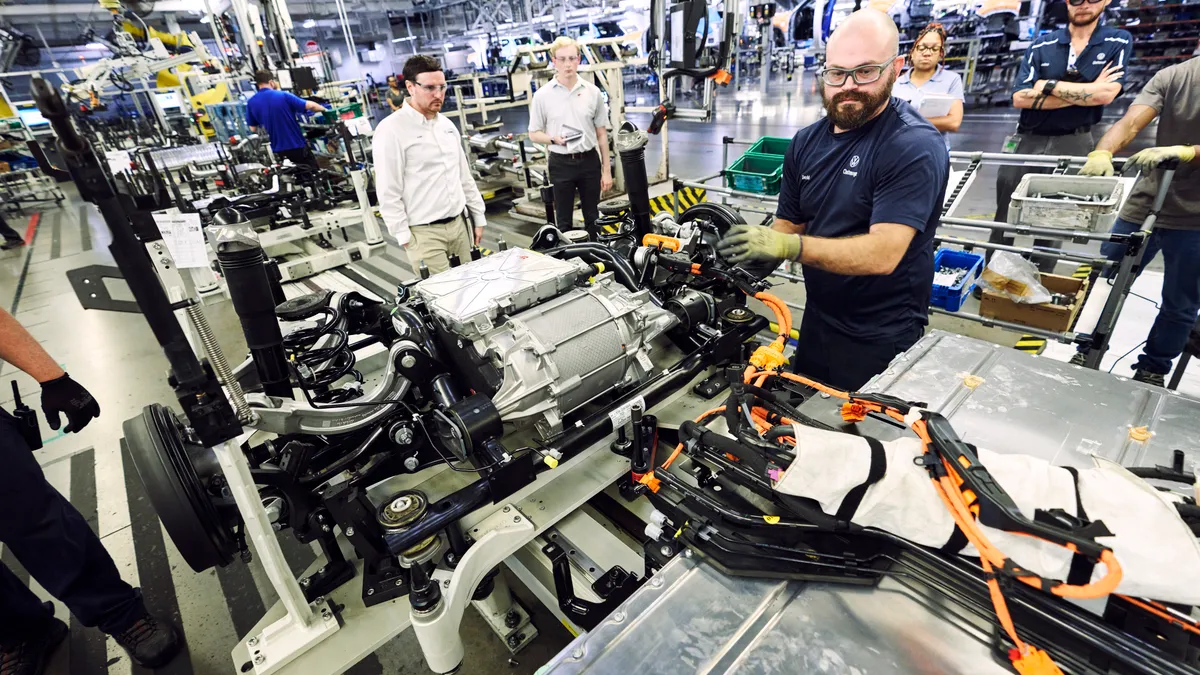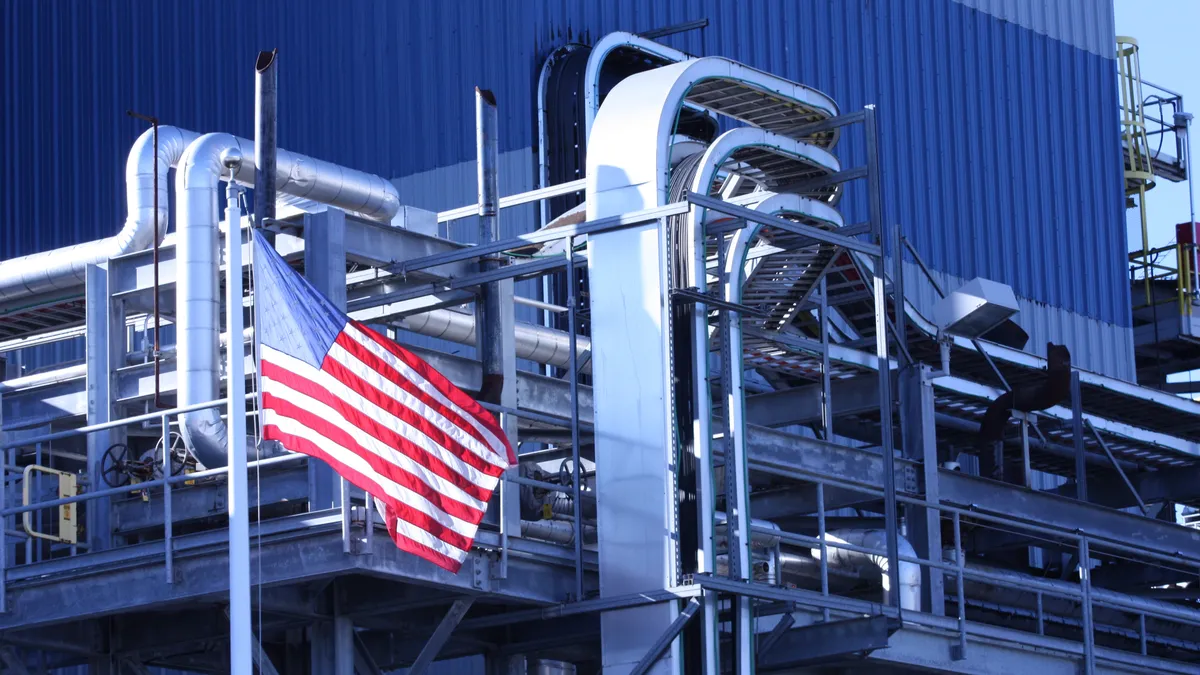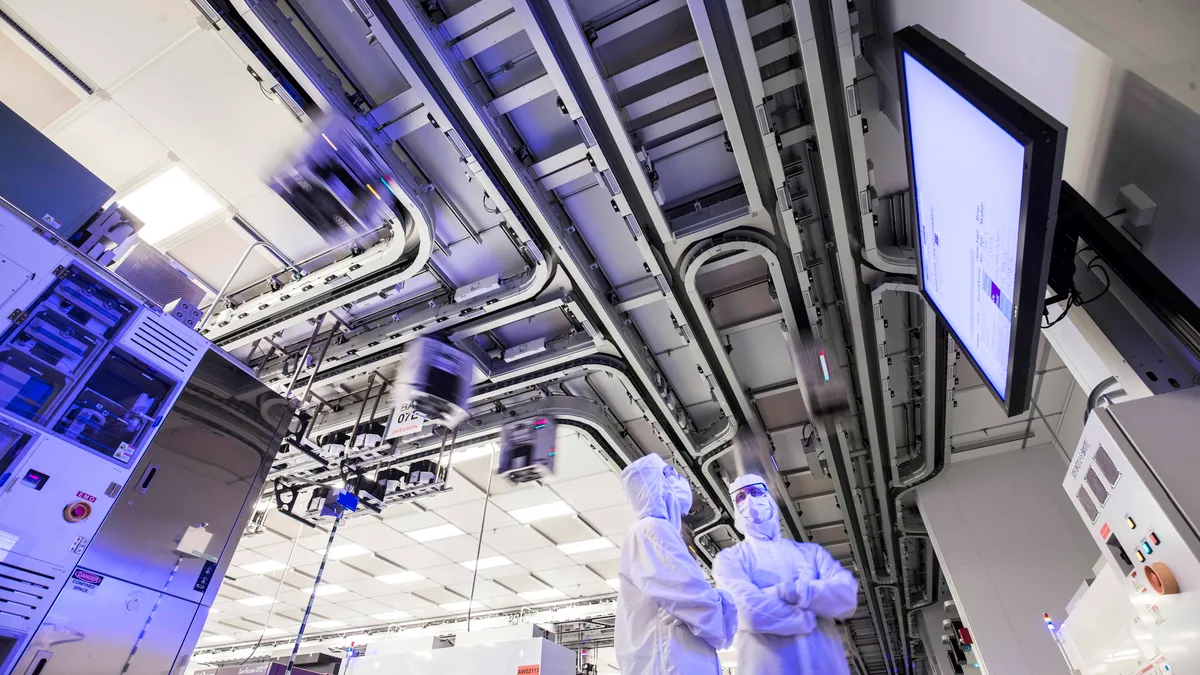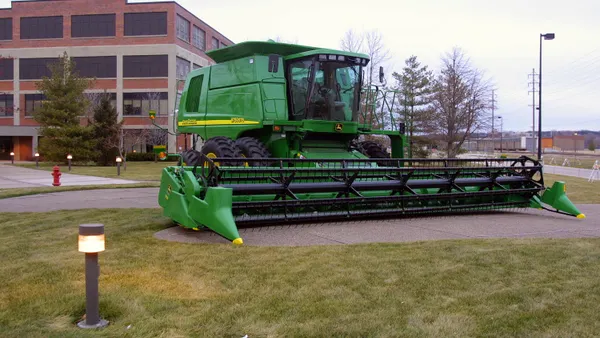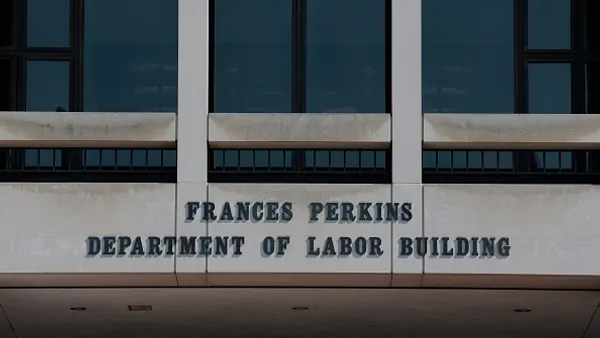Dive Brief:
- The United Auto Workers is committing $40 million through 2026 to support unionization efforts at joint venture battery plants and non-union auto plants, primarily in the southern parts of the U.S., the union announced last week.
- The new funding aims to support the uptick in organizing efforts by non-union workers at auto plants in the U.S., the UAW said.
- More than 10,000 non-union autoworkers in the U.S. have signed union cards since the UAW launched its unionization campaign in December, according to the union.
Dive Insight:
The news comes after the UAW won historic wage increases from the Detroit Three automakers and launched a nationwide effort to organize almost 150,000 non-union autoworkers at 13 car companies last fall.
In recent weeks, the union drive has picked up steam as more than half of autoworkers at the Volkswagen Group’s assembly plant in Chattanooga, Tennessee, signed union cards, according to the UAW. Likewise, over 30% of autoworkers at Hyundai Motor Group’s assembly plant in Montgomery, Alabama, and Mercedes-Benz Group’s assembly plant in Vance, Alabama, signed union cards.
It hasn’t been smooth sailing though as some autoworkers filed unfair labor practice complaints against Honda, Hyundai and Volkswagen in December, alleging union-busting activities.
Now, the union wants to ensure that employees at EV battery plants have the same benefits and protections as UAW members at other facilities.
The UAW says efforts by the Detroit Three to build more electric vehicles will eliminate jobs as the automakers move more manufacturing to EV battery plants. Those jobs will, in some cases, largely replace existing jobs for producing internal combustion engine vehicles, according to the UAW.
“It’s in the best interest of both the citizens of the states receiving billions in grants to build EV facilities and the UAW who will build the cars and batteries to make sure they are middle-class paying, high quality jobs,” said Bob Bruno, professor and director of the Labor Education Program at the University of Illinois, in an email.
Last fall, General Motors and Stellantis agreed to cover all EV battery plant workers under the UAW master agreement. The two companies even agreed to allow workers to unionize via “card check,” meaning they would voluntarily recognize a union if most workers wanted one.
Ford Motor Co., on the other hand, did not agree to cover EV battery plants under the UAW master agreement. It did, however, agree to cover future employees at its forthcoming EV battery plant in Marshall, Michigan, which is set to open in 2026 as part of a collaboration with a Chinese company, Contemporary Amperex Technology Co.
During the strike, battery plants were a sticking point for Ford. In September, Ford President and CEO Jim Farley said that the union was “holding the deal hostage over battery plants” because the UAW wanted battery plant workers to be part of the master agreement.



